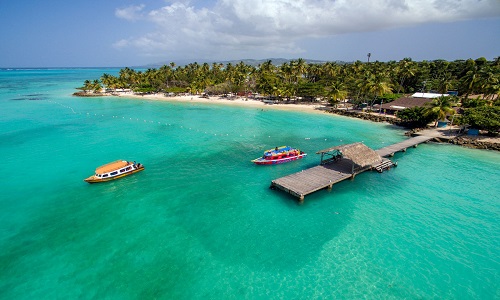A Firstline Securities Limited Blog from our Risk Manager in London.
Part 3 – The 2020 Mid-Year Review
INSIGHTS

Introduction
On the 12th June 2020, the Minister of Finance presented the current administration’s final mid-year review before the election. In this final blog entry, we complete our exploration of the main contents of that presentation and the implications for that review for the citizens of Trinidad and Tobago.
Tobago and the Development Loans Act
The Minister announced three initiatives with regard to Tobago:
- The Tobago House of Assembly has been provided with TT$50 million(m) to fund the Tobago Regional Health Authority with COVID-19 related expenses.
- TT$5m is being provided for the Enterprise Development Programme to assist small businesses.
- A special fund of TT$50 million will be provided for grants to Tobago Hoteliers for hotel upgrades and financial support.
These initiatives are to be funded under the Development Loans Act. Under this Act, the GORTT has utilised TT$1 billion out of the TT$10 billion available under the Act.
The Heritage Stabilisation Fund (HSF)

On the 15th May 2020, the GORTT withdrew TT$400 million from the HSF for budgetary support.
The HSF allows for emergency drawdowns of US$1.5 billion (TT$ 10 billion) in any one financial year.
Since 2015, the current administration has withdrawn US$1.1 billion and total value of the HSF now stands at close to US$6 billion. This is US$400 million more than when the current government entered office. Assets in the HSF currently represent 28% of GDP.
Photo Credit: View Link
The Mid-Year Fiscal Outturn

The original budget was predicated on the following fundamentals:
- An average oil price of US$60 per barrel and a natural gas price of US$3.00 per MMBtu
- Budgeted expenditure of TT$53.036 billion
- Total revenue of TT$47.749 billion
- A fiscal deficit of TT$5.208 billion representing 3.15% of GDP
The GORTT expects a revised overall deficit of TT$14.533 billion representing 8.8% of the GDP. Total expenditure is revised by a marginal amount to TT$53.107 billion while revenue is revised down by approximately TT$9.2 billion. Oil prices are expected to be US$25 per barrel and gas prices US$1.80 per MMBtu. In 2021 these are expected to climb to US$45 for oil and US$2.90 per MMBtu for gas. The debt to GDP ratio is expected to grow to just over 70% as a result of the pandemic.
Despite curtailment of budgeted expenditure an additional TT$2.686 billion will be required to fund urgent and critical recurrent expenditure and capital needs to 30th September 2020. Most of these sums relate to expenditure arising from the COVID-19 pandemic.
Of this sum, TT$2,518,374,800 is for recurrent expenditure and the balance of TT$167,626,000 is for development programme expenditure. The supplemental sum covers 15 heads of expenditure.
Moving Forward

The GORTT expects a moderate rebound of the economy over the next 12 months aided by short term simulative policies.
Some tightening of the belt is expected in the short to medium term with the GORTT planning to bring debt levels back to pre-COVID-19 levels by 2023. For the record, pre-COVID-19 levels of debt stood at around 63%.
The GORTT expects a decline in GDP of 2.4% in 2020 rebounding to a growth of 4.7% in 2021.
Inflation is expected to remain at 1% or less.
Evaluating Trinidad and Tobago’s Pandemic Response

On the 30th January 2020 Trinidad and Tobago imposed restrictions on travellers from China. Trinidad and Tobago was the first country in the Western Hemisphere to impose such restrictions.
On the 19th March 2020 Trinidad and Tobago issued a series of Public Health Restrictions designed to contain the spread of the virus and ensure that health services were not overrun.
As a result, Trinidad and Tobago has been ranked number one in the world by the Oxford University in terms of the management of COVID-19 and its ability to exit lockdown without undue risk to the population or the economy.
The Minister of Finance committed to continuing a phased approach to the re-opening of the economy based upon opinion from medical experts.
Trinidad and Tobago is currently rated 15th in the world among 66 emerging economies by the Economist Magazine scoring well in all four categories used to assess emerging economic countries.
The four categories are:
- Level of Public Debt
- Level of Foreign Debt
- Cost of Borrowing
- Reserve Cover
Photo Credit: View Link
Buffers available to absorb future shocks in the short term

As a nation, Trinidad and Tobago has available to it substantial resources to absorb future shocks and an extension of the COVID-19 pandemic.
These include:
- TT$20 billion in potential funding from multi-lateral agencies including the IADB, CAF, World Bank, International and Local Banks, bilateral partners such as China and the HSF.
- TT$4 billion in low-cost funding from the IMF.
- Foreign reserves of US$7 billion representing 8 months of import cover.


